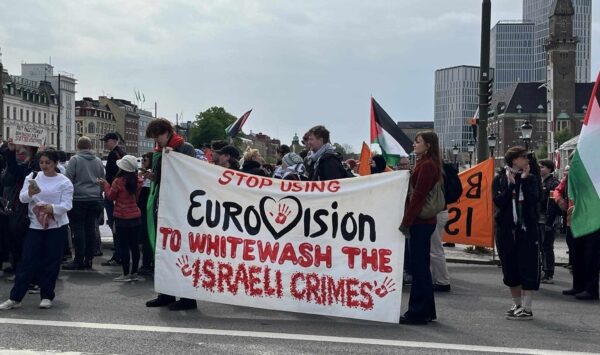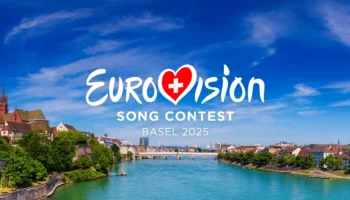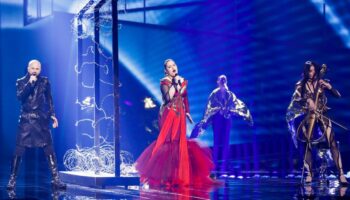Malmö, Sweden is abuzz with a complex mix of Eurovision excitement and simmering tensions. Thousands of pro-Palestinian protestors have gathered outside the Malmö Arena, calling for a ceasefire in Gaza and expressing their opposition to Israel’s participation in the contest. This movement has garnered international attention, with climate activist Greta Thunberg joining the demonstrations to highlight the global reach of the conflict’s impact.
A Call for Peace, Not Hate
It’s important to understand the distinction between the protests and the Eurovision song contest itself. Protesters are directing their voices towards the ongoing conflict in Gaza, not the artistic celebration that Eurovision aims to be. Organizers have prioritized robust security measures to ensure a safe and inclusive event, and protestors have consistently declared their intention for peaceful demonstrations.
Israeli Contestant hopes for unity through music
Despite the surrounding tensions, Golan, Israel’s representative, remains optimistic. “This is a super important moment for us, especially this year,” she told Reuters in a recent interview. Golan aspires for her performance to serve as a bridge between cultures and promote a message of unity. This sentiment echoes the core values of Eurovision, which strives to celebrate diversity and artistic expression on a global platform.
Unfortunately, the pre-contest atmosphere hasn’t been entirely free of discord. Rehearsals haven’t been immune, with Golan’s performance reportedly disrupted by shouts of “Free Palestine,” highlighting the raw emotions surrounding the conflict. This incident reignites a debate about the intersection of geopolitics and entertainment.
Accusations of Whitewashing and Historical Precedents
Protestors also criticize what they perceive as “whitewashing” by Eurovision organizers, who haven’t directly addressed the Gaza situation. They believe the contest overlooks the seriousness of human rights concerns by focusing solely on the musical competition. This criticism isn’t entirely new. In 2019, when Eurovision was held in Tel Aviv, Israel, similar tensions arose. The Icelandic participants Hatari caused a stir by waving hidden Palestinian flags during the voting segment. Perhaps the most high-profile incident that year came during Madonna’s guest performance. Her two backup dancers appeared on stage having on their backs the Israeli flag and the other the Palestinian flag, briefly embracing in a symbolic gesture. These historical precedents demonstrate that Eurovision has not been entirely immune to political expression in the past.
First Semi-Final Solidarity and Eurovision’s Rules
The first semi-final further fueled the debate. Swedish singer Eric Saade expressed solidarity with the Palestinian cause by wearing a traditional keffiyeh scarf – a symbol often associated with pro-Palestinian sentiment. This act, while seemingly harmless, sparked controversy, prompting the Eurovision Song Contest to release a statement. The statement acknowledged the performer’s right to freedom of expression but emphasized that all participants are made aware of the contest’s non-political nature beforehand. They expressed regret that Saade’s actions “compromised the non-political nature of the event” and offered to discuss the matter after the broadcast.
A Contest at a Crossroads
The 2024 Eurovision Song Contest finds itself at a crossroads, caught between the unifying power of music and the complexities of geopolitics. While organizers strive for a unifying spectacle showcasing artistic talent from across Europe, the conflict in Gaza casts a long shadow. Whether the spirit of music can bridge these divides and foster understanding in this charged climate remains to be seen.
Hopefully, with a focus on the music and the joy of cultural exchange, Eurovision 2024 can still deliver a memorable and unifying event, despite the current tensions.




